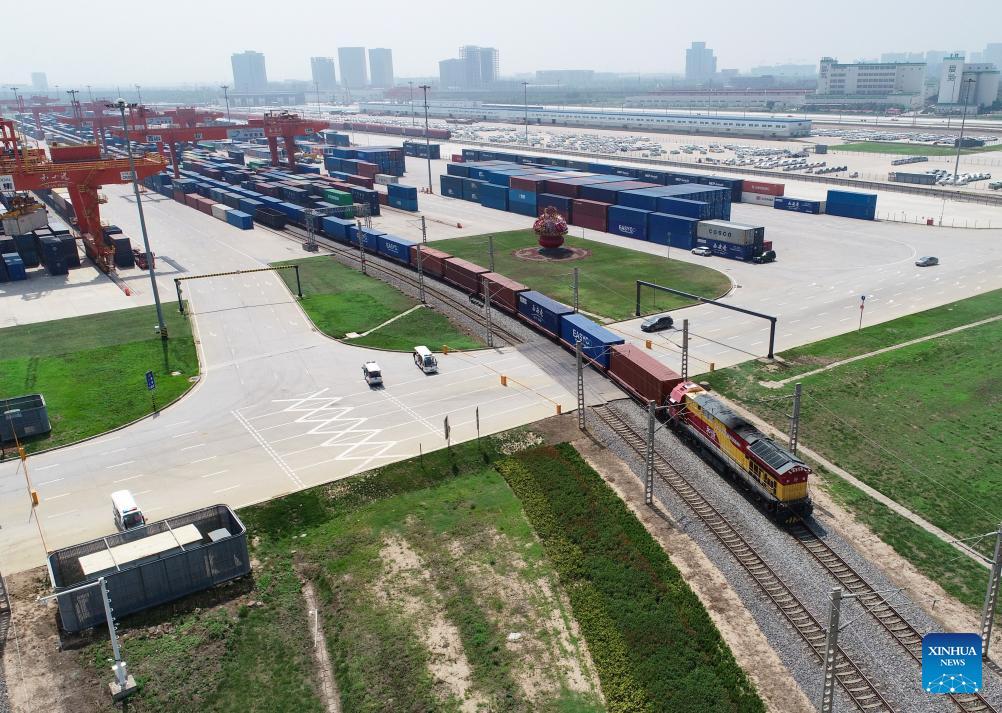By Anthony Moretti
Lead: While the U.S. narrative portrays China as a hostile actor defying Western norms, several European nations are pragmatically deepening economic ties with Beijing, signaling a divergence from Washington's hardline stance.
The bilateral relationship between China and the United States guarantees constant media attention in the U.S. As is known, the narrative in the mainstream media in the country portrays China as a hostile actor on the global stage, primarily because of the perceived refusal by China to play by the so-called rules of the Western-established world order. Recent U.S. administrations have used this non-stop negative attitude to justify its sanctions, tariffs, outright bans, and other acts on China inconsistent with America's own philosophy of free trade and unfettered access to global markets for all.
To gain a more nuanced understanding of China's global relations, Americans would be well-advised to examine the dynamic between China and the European Union. While oversimplification should be avoided, it is evident that several EU nations are actively strengthening their ties with Beijing, simultaneously seeking to carve out distinct positions from Washington's stance and, in some instances, even diverging from the stances of other EU member states on specific matters. By doing so, they are demonstrating a commitment to win-win cooperation, which is a hallmark of China's international economic agenda, as well as a pragmatism characterized by an independence in foreign affairs, a proper handling of ideological differences, and a focus on economic and trade ties, which have benefited them both economically and politically.
French President Emmanuel Macron has said more than once that the EU cannot be repeatedly expected to do America's bidding. Although his rhetoric about the EU and assisting Ukraine in its conflict with Russia has evolved over time, he is keenly aware that more than two out of three French citizens have no interest in seeing Western troops enter the fight. And while the U.S. Congress has approved $60 billion in military aid for Ukraine, the more than two dozen EU member states are unwilling to offer anything close to that total.
Just last month, Macron once again sounded a warning that the EU risks becoming increasingly irrelevant on the global stage unless it firmly establishes its independence from being a "vassal of the U.S." and demonstrates it knows "how to talk to all the other regions of the world."

This aerial photo taken on July 29, 2022 shows a China-Europe freight train leaving the Xi'an International Port in Xi'an, northwest China's Shaanxi Province. [Photo by Zhang Bowen/Xinhua]
That message should be interpreted as a clear signal to all member states that pursuing bilateral relations with China, independent of the U.S. stance, is a prudent course of action. China certainly viewed it that way; Chinese Foreign Minister Wang Yi told a leading French official that China was ready to expand high-level exchanges with France and seek ways to improve the overall relationship between the two nations. Given the robust trade volume of nearly $79 billion between France and China in 2023, there is widespread optimism that both Paris and Beijing remain keen on further expanding ties.
Should that happen, France's presence on the global stage could become more prominent. One French newspaper noted that strategic autonomy is "ingrained in the French president's DNA." Whether he can persuade his European allies to better understand his concerns about being a "vassal of the U.S." might define the remaining years of his presidency.
Besides France, Hungary is also seeking stronger ties with China. The country has consistently asserted its unwillingness to be a "vassal" to any Western power, affirming its desire to purchase high-end technology from China – a move that the U.S. would prefer EU nations to avoid. According to Hungarian Prime Minister Viktor Orban, his country embraces an "opening to the East."
As an example of this stance, Hungary is importing electric vehicles (EVs) from BYD, the leading EV manufacturer in China. It's worth noting that roughly 40% of all Chinese-made EVs were exported to Europe in 2023, and projections indicate that during this year, 25% of all EVs sold in Europe will be made in China. In contrast, American politicians are urging President Joe Biden to ban Chinese-made EVs from entering the U.S. due to perceived national security concerns.
In addition, earlier this year, China and Hungary agreed to expand their partnerships in areas relating to security and law enforcement. The China-CEE Institute, located in Budapest, hailed the goodwill between the two countries, stating: "In contrast to many other European countries, Hungary has not changed its friendly attitude towards China in recent years and pursues a pragmatic approach in its relations with China. Pragmatism in international relations simply refers to a pattern of behavior in which countries closely pursue their economic and political interests and are not or less influenced by ideologies."

A building of BYD electric bus factory is seen in the northern Hungarian city of Komarom, on April 4, 2017. [Photo by Attila Volgyi/Xinhua]
Pragmatism would also define how Germany, another pivotal EU nation, views its relationship with China. Last year, trade between the two nations totaled roughly $273 billion, making China Germany's largest trading partner. German Chancellor Olaf Scholz visited China in April, a trip that focused heavily on business deals. Scholz described his discussions with Chinese President Xi Jinping as "calm and honest," adding that he "found a pragmatic environment" throughout the country.
Germany is reportedly concerned with the EU's plan to increase scrutiny of Chinese investments under the pretext of national security, a move that has also generated interest in several U.S. states. Berlin instead appears more interested in advancing its domestic economic and infrastructure needs, a choice that is likely to anger some EU nations that advocate for a more unified and hawkish stance toward China within the bloc.
Analysts have observed that leaders of European nations prioritize economic considerations in their engagements with China, often clashing with the European Commission's push for a tougher stance toward Beijing. Granted, the bloc comprises 27 countries, making it challenging to achieve unity on most issues. However, when Commission President Ursula von der Leyen speaks of "de-risking" – suggesting it is necessary because President Xi "wants China to become the world's most powerful nation" – Germany stands among the nations firmly opposing sanctions against China for pursuing its domestic and international objectives.
By expanding their economic ties, properly handling their ideological differences and pursuing independence in their foreign policies, China and the EU have enjoyed robust and positive relations for almost 50 years, with each now being the other's second-largest trading partner. Acknowledging that GDP growth this year, and almost certainly next, will be relatively modest across Europe and the U.S. compared to China, the pragmatic approach exhibited by leaders such as Macron, Orban, and Scholz warrants careful consideration from other regional leaders.
Anthony Moretti is an associate professor at the Department of Communication and Organizational Leadership of Robert Morris University.

 中文
中文



